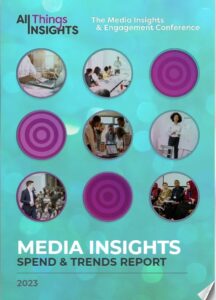The Evolution of Qualitative Research
An AI-moderated approach is ideal for large-scale projects and tasks that are repetitive, but it should be used with caution for sensitive topics or strategic decisions that require human empathy and nuanced interpretation. A hybrid model, where AI handles routine tasks and humans manage more complex aspects, is often the most effective solution.
Depending on the needs of the study, it may be ideal to find a balanced and hybrid approach. The AI benefits are clear for efficiency as well as time and cost savings, while it might be more valuable to employ a human touch when deeper insights, emotional context, and empathy are needed.
In “The role and importance of moderation in qualitative market research in the age of AI,” ICG’s Frank-Thomas Naether examines the advantages and disadvantages of each method. He also outlines what may be inevitable—the AI integration of these tactics in the research process, including:
- Adaptive interview guides: AI can identify key topics during the interview and dynamically suggest customized questions tailored to the participants’ specific interests and experiences.
- Multi-dimensional analysis in real time: While the moderator concentrates on the interpersonal interaction, AI can carry out parallel sentiment analyses, create semantic networks and identify thematic clusters—all of which can discreetly serve as input for the moderator.
- Hybrid research designs: The combination of AI-supported pre-analysis of large amounts of data and targeted qualitative in-depth exploration enables new research designs that combine quantitative breadth with qualitative depth.
- Continuous learning loops: AI systems can learn from each moderated session and help moderators refine their techniques by identifying patterns of successful interventions.
Engaging with an AI Moderator
During TMRE 2025, Andy Barraclough, CEO at Voxpopme, will hold the session, “What do Participants Really Think About Talking to an AI Moderator?”
AI is no longer a “what if…”. It’s here, it’s evolving fast, and it’s already being used in qualitative research. But while we talk endlessly about efficiency, scale and insight generation, we’ve skipped over a crucial part of the research equation: the participant experience.
This session explores what it’s actually like for real people to engage with an AI moderator. How does it feel to open up to a bot versus a human? Do participants trust it? Do they ramble, reflect, shut down or go deeper? What does AI moderation unlock – and where does it hit a wall?
We’ll compare the same set of questions asked across four formats: a traditional quant survey; an AI-moderated qualitative interview; a video self-record survey; and a human-moderated in-depth interview. Our goal: to understand the depth, tone, trust, emotional range and cognitive load of each method through the eyes of the participant – not just the researcher.
Can Focus Groups Benefit from AI Moderation?
In addition, during TMRE 2025, Aaron Cannon, CEO & Co-Founder at Outset.ai, and Angela Kesselman, Sr. Manager, Brand Research & Insights at Indeed, will hold the session, “Rethinking Focus Groups – How Indeed is Using Outset AI-Moderated Interviews.”
What happens when a global brand puts AI and humans head-to-head in qualitative research? When Indeed tested its most important messaging, they ran both traditional focus groups and Outset’s AI-moderated interviews. The results revealed more than cost savings—they reshaped how the team builds confidence in new messaging. Join this candid conversation about what AI can (and can’t) do for modern insights teams.
The Best of Both Human & Machine
Qualitative market research techniques are expanding with AI, which is bringing additional value to the process. Ultimately, as ICG notes, this can enhance the market researcher’s efforts with both human creativity, empathy and social intelligence paired with the analytical power, speed and scalability of AI.
ICG’s Naether sees several trends taking place in the coming years:
- The augmented moderator: Special, discrete AI assistance systems that support moderators during the discussion – for example by providing real-time feedback on overlooked topics or suggestions for more in-depth questions that are displayed via augmented reality glasses or subtle signals.
- Hybrid research teams: Instead of the traditional distribution of roles, research teams are being created in which human moderators and AI systems work together in a complementary way – for example, by AI pre-sorting large amounts of data and human moderators going into greater depth in a targeted manner.
- New qualification profiles: Qualitative market researchers are developing new skills profiles that include not only traditional moderation skills but also the confident use of AI systems—a “digital qualitative researcher” who embodies the best of both worlds.
Video: “Using AI Moderation for UX Research: Intuit, Outset, & User Interviews,” courtesy of Outset AI.
Contributor
-

Matthew Kramer is the Digital Editor for All Things Insights & All Things Innovation. He has over 20 years of experience working in publishing and media companies, on a variety of business-to-business publications, websites and trade shows.
View all posts





























































































































































































































